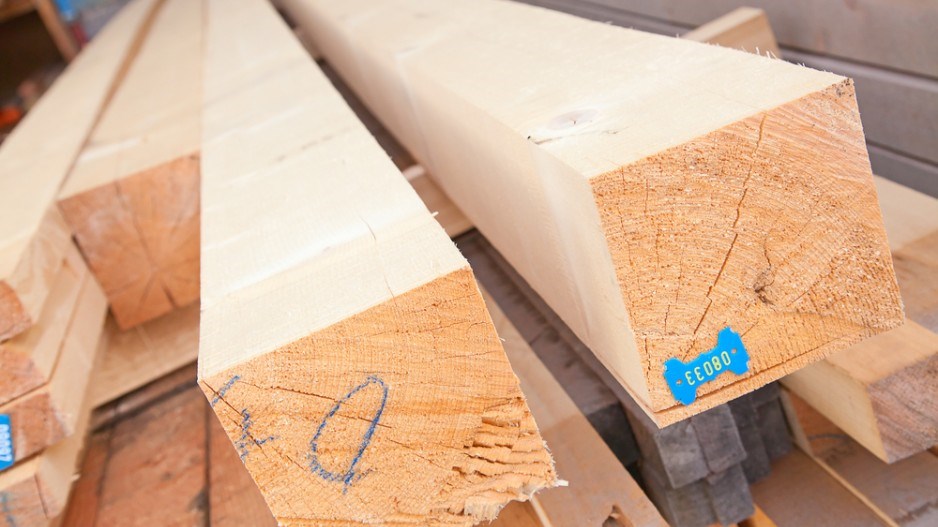Europe represents a tiny fraction of Canada’s wood exports, but that doesn’t mean the recently announced free trade agreement between Canada and the European Union won’t benefit the sector, especially in the long run.
The Canada Wood Council noted that while 3% of Canadian wood exports are sold to Europe, most of those exports are higher grades of wood, representing 6% of the value of exports. The Canada-EU agreement will remove tariffs that currently average 1.2%.
B.C.’s forestry industry has been heavily focused developing markets in Asia and especially China over the last half-decade.
It’s not so much about what Canada sells to Europe now, but the future business opportunities for forestry and other sectors with this new agreement now in place, said Kurt Huebner, a professor at the University of British Columbia’s Sauder School of Business.
“CETA [Comprehensive Economic Trade Agreement] is an opening for the future,” Huebner said. “It’s a trade agreement that provides the framework. It doesn’t offer business opportunities from one moment to the next, it’s more like an invitation.”
But to compete with Europe’s domestic timber industry, which is further ahead in product advancements like engineered wood, B.C. companies will have to step up on innovation, produce more value-added products and make sure environmental sustainability is at the forefront, said Huebner.
“This is our opportunity to upgrade and catch up and commit to a best practice forestry and products,” Huebner said. “A lot of consumers are willing to pay the extra Euro if the logs are environmentally certified.”
Huebner also expects European companies to look at making investments in Canadian companies, especially as it would give them access to U.S. markets through the North American Free Trade Agreement.
Huebner noted that Europe is B.C.’s third largest export market, behind the U.S. and Asia.
The federal government has identified forestry and seafood as two B.C. sectors that could benefit from the agreement.




